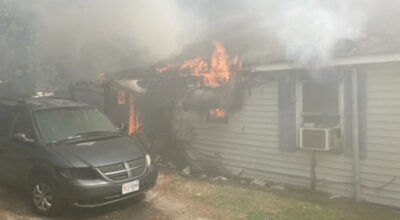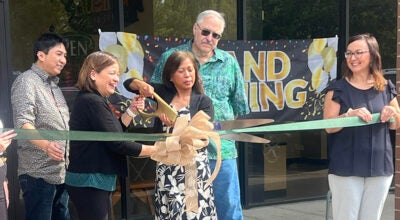House, Senate begin negotiations
Published 10:46 pm Tuesday, March 2, 2010
The Virginia General Assembly begins working out the kinks in the state budget this week.
The House of Delegates and the Senate will try to close a $4 billion shortfall as they work to reconcile the differences in their respective budgets.
Because of the economic downturn and a decline in tax revenues, both proposed budgets for the next two years would cut state spending. However, there are significant differences in how the competing plans fund core services.
Delegate S. Chris Jones (R-Suffolk), is one of two new appointees to the bipartisan budget conference this year. Deliberations were to have begun on Tuesday, and Jones hopes to finish by March 13.
“There’s a lot to do between now and then,” Jones said. “This is just going to be a very difficult year working within the confines of no money.”
The House budget includes cuts in K-12 education, while the Senate cut more in health and human resources, Jones said. The Senate budget relies on a number of additional fees to make up part of the overall shortfall — one fee, for example, would require people who have been convicted of driving under the influence to pay an extra $50 to have their driver’s license reinstated — while the House recommends reduced payments into the Virginia Retirement System to help save money.
Sen. Fred Quayle, (R-Suffolk), said he is “not excited” about the changes to the funding of the retirement fund. However, he does not think it will affect the state’s bonding capacity.
“It has not been an easy year, budget-wise,” Quayle said. “A lot of people are hurting.”
A couple of bright spots in the House budget include no new cuts for higher education, and the restoration of the bulk of the cuts to constitutional officers’ budgets, Jones said. The House budget also does not cut public safety, he said.
“We’re dealing with trying to restore some cuts, potentially, and looking to mitigate, as best we can, the bad economy.”
Quayle said the good news in the budget is that lawmakers’ and the governor’s expectations have become more realistic.
“I think that finally we are being very conservative about what we can expect regarding revenues,” Quayle said.
Transportation was not addressed much in this budget process, Jones said, noting Gov. Bob McDonnell is considering calling a special session on transportation funding.
Health and education will be the two main areas to suffer, Jones said.
“They’ll be the two areas that have the biggest differences,” he said.
In education, Jones said local governments will be permitted to withhold payments into the Virginia Retirement System, saving them about $508 million over the next two years.
“They can redirect it to the classroom,” Jones said, adding that he has been in contact with Suffolk schools Superintendent Milton Liverman about the budget.
“We’re awaiting his evaluation of the House actions,” he said. “He’s going to give me his initial impression of what we’ve done.”
In health care, the House kept its cuts to a minimum, Jones said.
“We felt strongly we had to protect the safety net,” he said.
The House cut eligibility for FAMIS (Family Access to Medical Insurance Security), which provides insurance coverage to children of parents who make too much for Medicaid but do not have private insurance. Jones said those cuts could get restored with federal stimulus money.
“There is contingent language in the budget that if we get the enhanced match … we would restore eligibility back for those programs,” Jones said.
Gov. Bob McDonnell said he is pleased that both budget plans fund his job creation and economic development proposals, and neither proposes any general tax increases.
“We will not forget that the reductions we make will mean hardships in the near term for many of our citizens,” McDonnell said. “There are no easy choices in closing the $4 billion budget shortfall that is unparalleled in Virginia history.”
— Res Spears and Amelia Reddington contributed
to this story.






